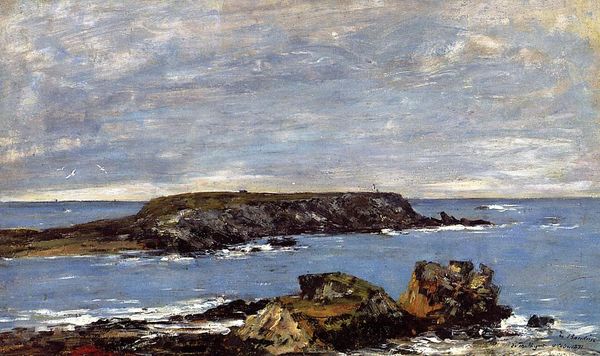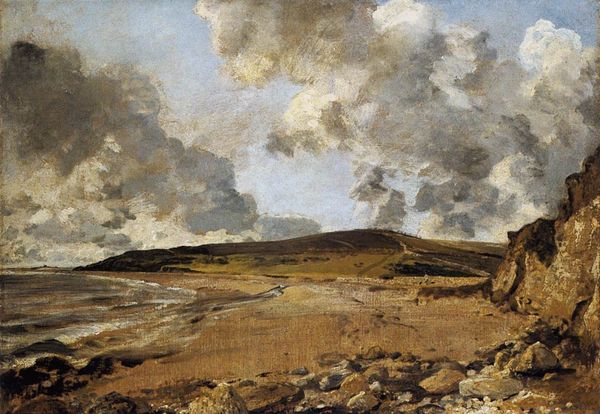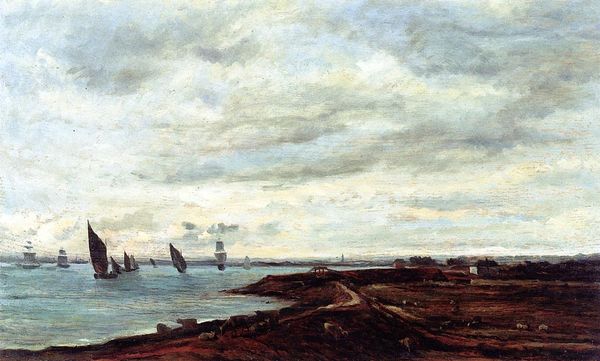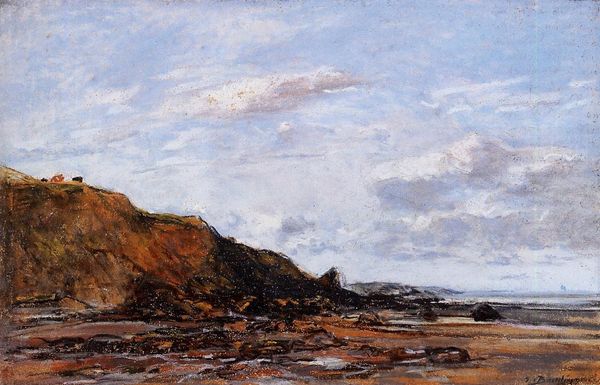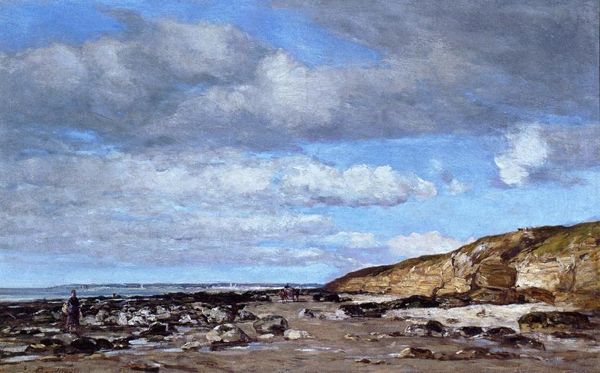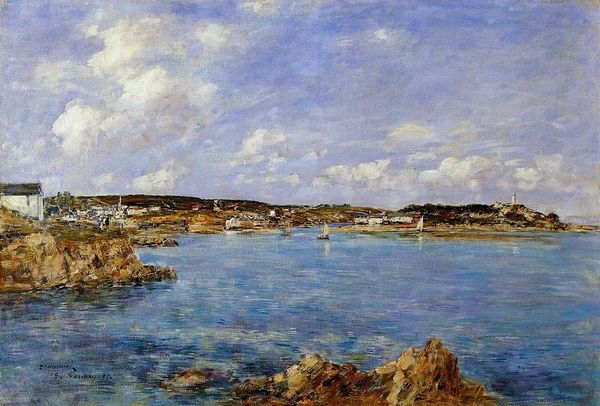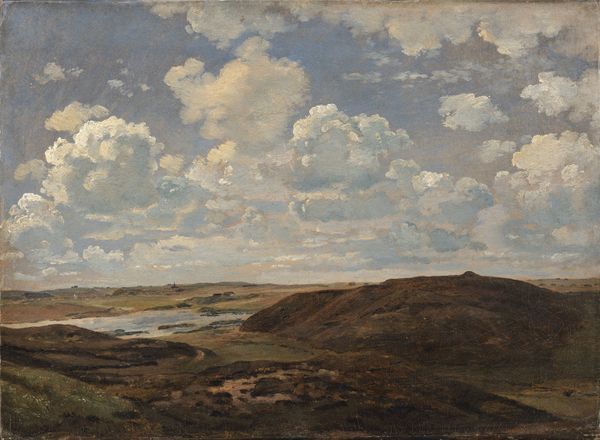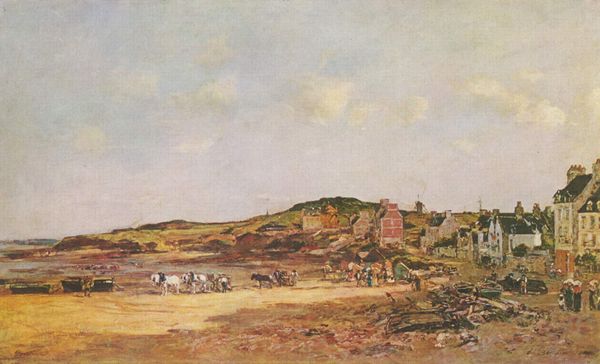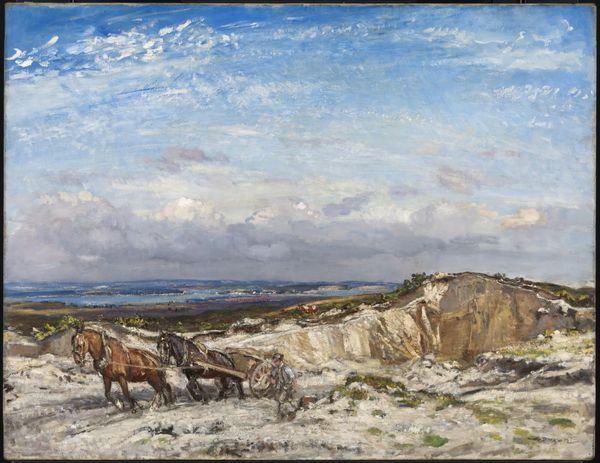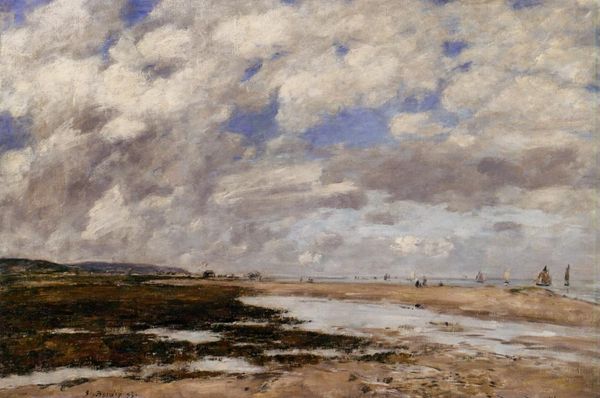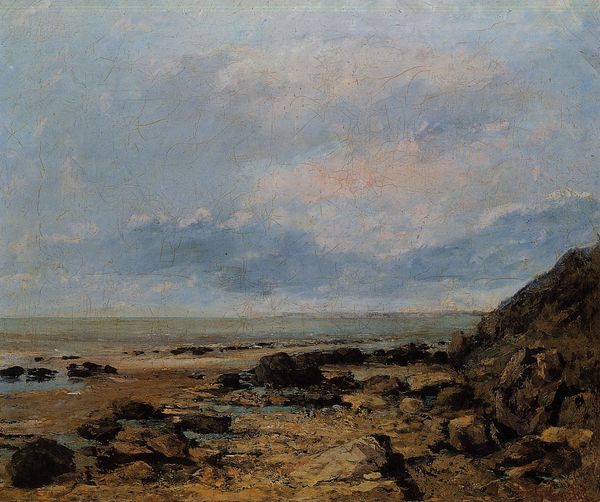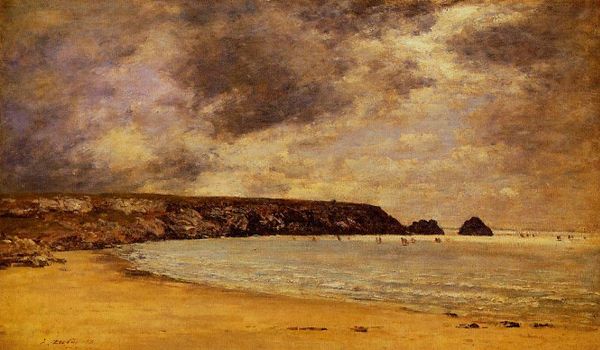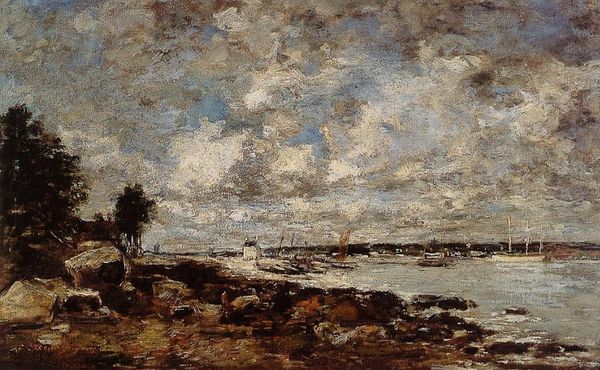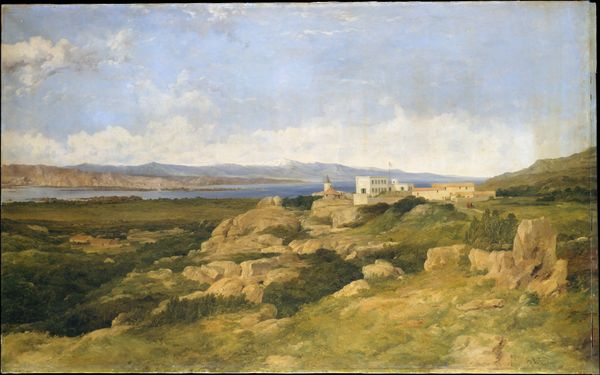
painting, plein-air, oil-paint
#
boat
#
sky
#
ship
#
painting
#
impressionism
#
plein-air
#
oil-paint
#
landscape
#
impressionist landscape
#
oil painting
#
derelict
#
cloud
#
cityscape
Copyright: Public domain
Curator: Looking at "Camaret, Low Tide" by Eugène Boudin, painted in 1873, what’s the first thing that jumps out at you? It’s one of his plein-air paintings, trying to capture the fleeting light and atmosphere of the French coast. Editor: Immediately, I feel this sense of quiet melancholy. The heavy clouds dominate the sky, almost pressing down on the scene, while the palette is muted, lots of greys and browns. It feels like a very particular, and possibly oppressive, mood is being evoked. Curator: Boudin was indeed known for his "sky studies." He felt they were the most important part of his paintings and often spent hours observing and sketching them. Think of how profoundly class-based maritime work must have been during this period! Editor: Absolutely. We can see a social commentary simmering beneath the surface. The fishing boats at low tide represent the precarious existence of those reliant on the sea. Their vulnerability, mirrored by the exposure of the seabed, connects them to the fluctuating fortunes dictated by natural forces and market economies. Were these workers even unionized yet, I wonder? Curator: Boudin definitely influenced Monet, teaching him to paint outdoors. This piece, with its focus on capturing the transient effects of light and atmosphere, embodies what would become the hallmark of Impressionism. He thought of these paintings as the truest records of the site, of what happened in real-time in front of his eyes. Editor: Monet certainly learned well. However, one shouldn’t look away from the social critique within. The 'atmosphere' you are mentioning certainly highlights nature as indifferent, cold, and potentially destructive, right? Where would we even place this little village in relation to any form of worker power at the time? Curator: Hmmm, I do tend to fall for the prettiness! It’s interesting how a seemingly simple seascape can hold such layers of interpretation. Editor: It makes us remember that even "pretty" art, whatever that means, never occurs in a vacuum, that we must always be vigilant. Curator: I'll remember that—thanks for pushing me! Editor: As always, the pleasure's been all mine.
Comments
No comments
Be the first to comment and join the conversation on the ultimate creative platform.
